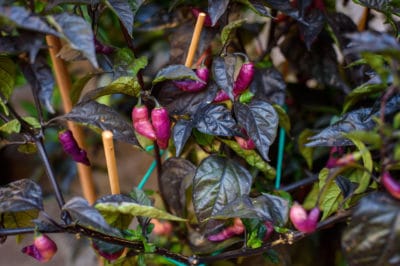What is Epsom Salt?
Though the name ‘salt’ scares many gardeners away, do not fear this type of salt for it contains no actual sodium. Instead, Epsom salt is 10 percent magnesium and 13 percent sulfur. Both of these essential nutrients occur in a water-soluble form in Epsom salt making them a perfect fertilizer for plants.
Magnesium
Magnesium is often deficient in garden soils and fruiting plants. Peppers and tomatoes are especially prone to magnesium deficiencies which can lead to a host of other problems. Magnesium is essential for the uptake of other nutrients in plants such as nitrogen and phosphorus. Plants experiencing magnesium deficiency may exhibit:
- Curling Leaves
- Yellowing Leaves
- Stunted Growth
- Bland Fruit
How to Apply
There are various ways to get magnesium sulfate, or Epsom salt, to your plants. Soils with alkaline pH tend to test low in magnesium, making these soils more prone to benefit from salt applications.
You can mix whole crystals into the soil. The recipe for this is 1-2 tablespoons of Epsom salt placed at the bottom of each transplanting hole at planting time.
You can use Epsom salt to fertilize throughout the season. Every six weeks work 1 tablespoon of salt per foot of plant height into the soil around the base of the plant.
Another application is a foliar spray. When the plants begin to flower for the first time, mix a solution of 2 tablespoons Epsom salt per gallon of water. Spray this liberally over plants.
Benefits and Effectiveness
While it is known that Epsom salt contains plant available nutrients, it is less known whether it is an effective fertilizer for pepper plants. Magnesium competes with nutrients like calcium and potassium in the soil for uptake and often loses that battle. Soils with adequate levels of magnesium can often grow plants that are deficient for this reason.
Studies indicate that foliar sprays are the best delivery system. Field tests do show results when Epsom salts are applied. Supportive farmers claim that fruits grow larger, juicier, and more flavorful with the application of Epsom salt. Some peppers exhibit up to three times thicker fruit when given magnesium sulfate.
